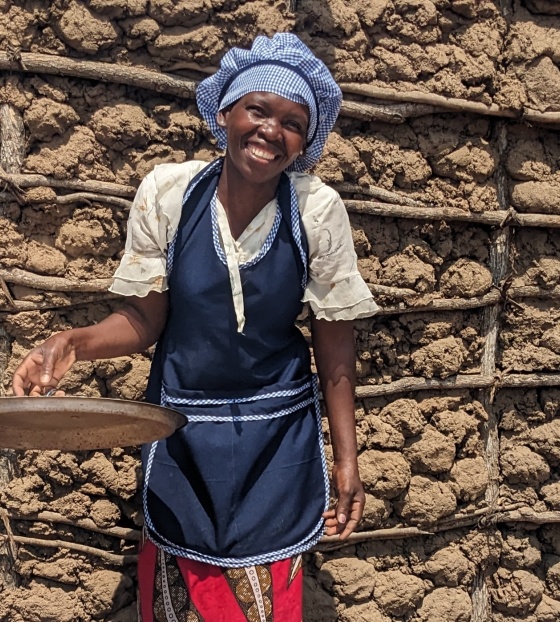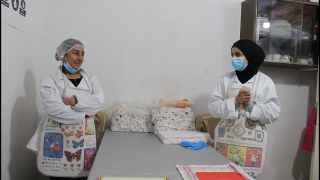

Empowering and strengthening communities
Teachers, parents and volunteers come together to run the school feeding programme – helping to build connections, cooperation and hope across the community.
The word community is synonymous with Mary’s Meals. It was community action that led to the creation of this work, and community action plays a vital role in making our school feeding programme possible today. If you don’t know the amazing story of how this work began, it is beautifully told in our founder’s book, The Shed That Fed 2 Million Children.
Communities are central to Mary’s Meals. The work of cooking and serving meals for children is done by teachers, parents and local volunteers from the communities around each school. In turn, this helps to strengthen connections, build cooperation and deliver additional benefits across the community.
The wider global movement that helps to make the school-feeding programme possible is fuelled by the dedication and determination of many thousands of individuals who come together to bring about positive change in their own communities and beyond.

A recipe for community
In the bustling kitchen of a community centre in Lebanon, Rinda and Fatmeh, two dedicated volunteer cooks find joy serving meals together as part of the Mary's Meals school feeding programme. Their heartwarming testimonies reveal the transformative power of our work, which is helping to foster unity, build community and break down barriers of discrimination in a place that’s had more than its fair share of difficult times.
Rinda, who is Lebanese, and Fatmeh, a Syrian refugee, both proud mothers, are enthusiastic when asked about their work for Mary's Meals. Their dedication and commitment shine through as they embrace the opportunity to make a difference in the lives of children and their communities. And in a place where locals and refugees live together, the school feeding programme not only nourishes young minds and bodies but also serves as a catalyst for unity and understanding.
Rinda emphasises that cultural and social backgrounds should not define the connections between people: “We are doing lots of activities that encourage children to meet each other so culturally people are closer,” she says. “So, regardless the background of each person, we are all brothers and sisters, and we are all on the same page. When I started working volunteering, I met people from different backgrounds. They talk to each other, they share their challenges with each other. They listen and they exchange sometimes hints. It’s a lovely regular discussion that’s happening.”
The impact of a plate of Mary’s Meals
For children experiencing extreme poverty and food insecurity, the benefits of a meal served consistently in their place of education go far beyond just addressing hunger. Research shows that as well as helping to reduce hunger and increase energy for the children we serve, our meals also contribute to improving their happiness and alleviating anxiety.
Recent studies across four of our largest country programmes (Kenya, Liberia, Malawi, Zambia) found that 74% of children felt hungry before Mary’s Meals was served. This dropped to 1% after the meal.[1] In our 2024 studies across our Kenya, Liberia and Malawi programmes, 100% of teachers reported that Mary’s Meals had a positive impact on the quality of education, including improvements in attendance, participation, focus, lesson retention, pass rates, and reduced sickness and absenteeism.[1]
On top of the benefits of daily school meals for children, school feeding has also been shown to have wider benefits for households and communities that include improved food security, more flexibility in redirecting economic resources to other needs, increased availability for work, and improved health and hygiene.
While our focus remains on each individual child in the programme and the importance of the meal they are served each school day, each plate has a reach way beyond alleviating a child’s hunger. The impact of the meals and the hope it brings is felt by siblings, parents, carers and whole communities with their hearts set on a brighter future.
[1] Mary’s Meals Annual Impact Report, 2024
It costs just £19.15, €22, $25.20 USD or $31.70 CAD to provide a child with life-changing daily meals for an entire school year. Your donation can help children experiencing poverty and hunger to change the trajectories of their lives – both right now, and for years to come.
It’s more than just a meal – it’s the potential for a better, brighter future.